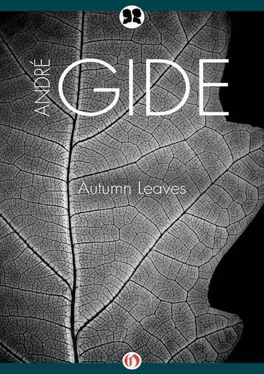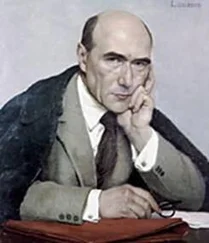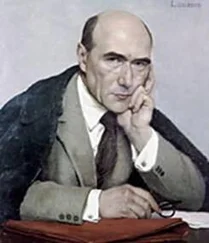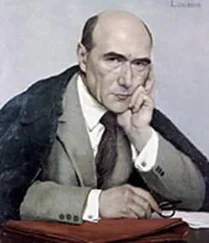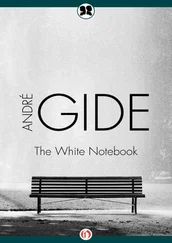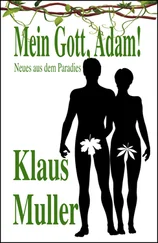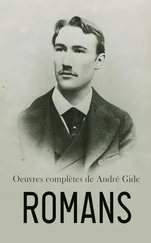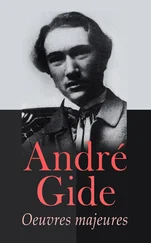Then, in spite of double meanings which, in one sense or another, invite us to make use of him tendenciously, Rimbaud remains an amazing master of the art of writing, an inventor of forms whose newness his numberless imitators have not been able to tarnish. Now, we know that questions of form are of the highest importance, in art as well, alas, as in religion. On this ground we are agreed.
Where I go along with you less, dear Seghers, is where you claim to look for, and perhaps find, in Rimbaud a possible rallying point for our desires, for our “dreams,” for our thoughts. Indeed I feel that your sentence remains prudently interrogative and that you have the honesty not to force our answers. Immediately after, you speak of French diversity, Recognize the danger then: if the being (and, in this case, the writer) about whom you consider it desirable for us to assemble, is simple and changeless, as Voltaire or Bossuet, I mean, if his tendency is clearly marked, he will be recognized as master by those alone possessing minds with the same tendency as his. If he is complex, “wavering and diverse” enough to give us (or permit us to take) the wrong scent, he will be able, all by himself, to represent “French diversity,” but the danger will be great that agreement on him be established by the aid of a misunderstanding.
Even “our” Péguy, that little soldier with a great heart, well-intentioned, yet simple, but uppity, humble before God alone, but in conflict with men, and protesting against authority, I am by no means certain that he would recognize as “one of his” a large number of those who claim him at present. If he were still living, that Dreyfusist, that fervent Christian who went beyond the sacraments, that fighter against orthodoxies, what would he say at seeing himself adopted by so many of the faithful who retain only that part of him that suits them?… And as for Rimbaud, what part of him will they retain, without all the rest of his being protesting? Will you take into account only the work of his youth, full of refractoriness, an appetite for freedom, risk and adventure, of blasphemy, and of greediness for forbidden fruit? Shall we forget the frightful bankruptcy of his life, the “ferocious invalid back from warm climes,” the “motionless stump” that this “tipsy” ship became? Or shall we say that this bankruptcy was, as a matter of fact, necessary, and those disappointments in order to obtain from him finally that questionable conversion in extremis which just the same permits the Catholics to claim him as their own? But then what do you admire in him? His early works interrupted almost immediately, or the forgetfulness of that work, and the existence that repudiates it?
I think, in the present troublesome times (when it is important at one and the same time to repudiate none of our heritage, and to render all that patrimony, like ourselves and our wills, serviceable to the uncertain future of France), that the exaggerated individualism taught us by Rimbaud, that incomparable ferment, must be held in reserve, and that it would be as imprudent to suppress it as to accord it free rein to-day.

1Publishedin Po é sie 41, No. 6 (1941) in answer to a research article in that magazine, entitled “Arthur Rimbaud died fifty years ago.”
21 THREE MEETINGS WITH VERLAINE
I MET Verlaine three times. The first time was in January 1890. I have not a very chronological memory and, if I can give the exact date, it is because I put down that visit in my Journal. I was with Pierre Louys. We had both just finished the rhetoric class. I needed a leader and I believe firmly that without Louys I would never have dared to present myself either at the home of Mallarmé or of Heredia, with whom I associated a great deal after that. Louys even wanted to take me to Théodore de Banville’s one day. He had just died. Pierre Louys was reproaching himself for never having gone near him. “It is a unique occasion and the last,” he said to me. “Anyone is admitted.” To-day I am sorry I did not see Banville on his mortuary couch. But that funereal visit (“by devotion,” insisted Louys) at that time appeared to me ghoulish impropriety. I refused. But I was glad to accept when he suggested that we both go pay our respects to Verlaine at the hospital.
Our pilgrimage to Broussais is recounted by Pierre Louys with perfect fidelity in a few pages published some time ago by Vers et Prose, the excellent magazine directed at that time by Paul Fort. Has that little writing ever been reprinted? I doubt it. Yet it deserves to be, and I could not add anything to it.
It was Pierre Louys, too, whom I accompanied to that famous banquet in celebration of his Passionate Pilgrim, of which André Billy had recently spoken highly in the Figaro. Pierre Louys had already been initiated while I still remained awkward and timid; several very beautiful sonnets had caused him to be received warmly by Heredia and the group of poets that thronged his gatherings every Tuesday. Henri de Régnier was the most important to them, and it was to him first that Pierre Louys introduced me the evening of the banquet. The author of Tel qu’en Songe (As in a Dream) was courteous and distant, very self-conscious, very careful of his remarks, but of charming amenity. After the banquet, Régnier took Louys and me to the Café Voltaire, on the Place de l’Odéon, and that was where I saw Verlaine for the second time.
It was late and Verlaine was drunk. Besides he could be so at any hour of the day or night. We were already in the café when he entered abruptly, flanked by Casals, his faithful companion. Wrapped in a huge greatcoat, he seemed enormous. We were all standing. He approached Régnier and seizing him by the vest or the tie, on putting his face very close to his: “As for you, my little one, I recognize you. You are Henri de Régnier.” To be sure it was a rare honor to be recognized by Verlaine; but Régnier, so lordly and perfect in his manners, seemed a little embarrassed by that drunken familiarity and the sudden use of tu; he put his back up and drew back a little, yet without ceasing to smile, flattered just the same, but careful to maintain a short distance between them.… And then Verlaine must have smelled horribly of wine. He did not say anything else to us that evening. Leaving Régnier, leaving that world, he went and slumped down in a corner, his look wandering.
My third encounter …
But before relating it, I should like to forestall any misunderstanding. My admiration for Verlaine is most lively. I consider him one of our greatest poets; the music of his poetry one of the most perfect and the purest that has ever been heard in France. I admire Verlaine, not on account of his intemperance, his habits and his irregular life; but not in spite of them, either.… I am not able, nor do I wish to disassociate one from the other. It was in the depths of the worst abasement that he found his sweetest accents, and doubtless the one was necessary to obtain the other “in a parallel direction.” So I consider that I in no way minimize him by my story; to the contrary.
A few years later, I was walking one morning near Saint-Etienne-du-Mont. I had completed my first studies at the Lycée Henri IV, and the memory of the bell of that little church that, on going to the lycée and returning from it, I used to see four times a day, in all weathers, tempers the unpleasant memories I have of my class in philosophy in spite of two remarkable pupils. And so once more that day I walked around the Panthéon. It was a little after the time classes dismissed at the lycée. Some children were lingering about and my attention was attracted by a considerable group of them; about twenty very lively ones were forming a circle and frolicking about noisily. Just imagine it; they were booing a drunkard. And what a drunkard! Did you ever see a nightbird, owl or screechowl, in the full sunlight, surrounded, hooted at by fledglings all around? When I had the opportunity much later, in my little garden at Cuverville, of being present one time at such a prodigious spectacle, I again thought immediately of that flock of scamps babbling around Verlaine; for it was he. His high hat had rolled to the ground, or more exactly into a puddle on the sidewalk, and that was what filled the brats with the most joy, for the stove-pipe, not usually worn in the morning except for special occasions, seemed the symbol of dignity itself. And Verlaine picked himself up, or rather picked himself up again, unkempt, haggard, his clothing in disorder and soiled with mud (he must have fallen down himself), holding up with one hand, I recall, his trousers without either belt or suspenders.… He looked like a wild boar or a deer, surrounded, worried by a pack of curs. And sometimes, as though answering the jeers with a blow from his snout, he bent toward the children angrily, crying, “Merde.” 1
Читать дальше
